Louisiana Rum - Part 3 - Bayou Rum Distillery
This story is the third in a series covering today’s Louisiana rum industry and its producers. For an introduction to Louisiana rum and the advantage the state’s distillers have over most other states, see Louisiana Rum - Part 1 - Overview.
Today, we’re looking at the Bayou Rum Distillery in Lacassine, Louisiana (Population 157.) Technically, the distillery is known as Louisiana Spirits, LLC, but I’ll call it the Bayou Rum distillery here for simplicity’s sake. Located just 45 miles west of the Texas/Louisiana line, Bayou is closer to Houston (150 miles) than New Orleans (170 miles.)
Despite its very rural setting, Bayou is easily Louisiana’s largest rum distiller by volume. The brand is distributed in most US states and has solid international distribution. And unlike the typical craft distillery that welcomes tourists (usually rum geeks) in small groups, Bayou welcomes tour buses with an ample parking lot and a gift shop larger than the entire distillery operation of several other Louisiana distilleries. Bayou is also the official rum of the New Orleans Saints. Where does the money to fund all this come from? We’ll get to that momentarily.
Bayou’s distillery was the vision of brothers Trey & Tim Litel and their friend Skip Cortese; Trey served as Bayou’s president. Upon opening in 2013, the head distiller was Jeff Murphy, Maggie Campbell’s predecessor at Privateer Rum in Massachusetts.
In June 2016, the SPI Group took a 72.5 ownership stake in Bayou. SPI is better known for its core company, Stoli Group, which has a portfolio of brands, including Stoli (“Stolichnaya”) Vodka and Kentucky Owl bourbon. SPI’s founder and owner is Yuri Shefler, a Russian, British, and Israeli billionaire.
Two years later, the SPI Group purchased the remainder of Bayou’s shares, and Trey Litel left shortly after that. However, Jeff Murphy remained as the head distiller through 2020.
Murphy’s replacement as head distiller is Reiniel Vicente Diaz, who was born in Cuba and later moved to the Dominican Republic, where he began working for Oliver & Oliver at just 16 years of age. Reiniel moved to the US to work at Bayou when the distillery started in 2013 and became Bayou’s master blender. When Murphy departed in 2020, Reinel took over the master distiller role as well.
Bayou Rum Distillery Operations
Despite Bayou’s rather large production space, the production team numbers just ten people.
Bayou sources its molasses from MA Patout & Son, one of Louisiana’s largest sugar mills and the oldest working sugar mill in the US. Before initiating fermentation, the distillers pasteurize the molasses to eliminate undesirable wild yeast or other microorganisms that might affect the rum’s flavor.


Fermentation batches are 4,000 gallons and use sourced dry yeast. For the first day of fermentation, no temperature control is in effect. For the remaining four days, the wash is kept at 60F. The final wash has an alcohol content of 10 to 12 percent ABV, on the high end of things compared to Caribbean distilleries in places like Jamaica, Barbados, and Martinique.
Everything Bayou makes is pot distilled using a stripping still and two spirit stills. The 1,300-gallon stripping still takes seven hours to complete each distillation, enabling the entire 4,000-gallon wash batch to be stripped in less than a day. The resulting 1,200 gallons of low wines are between 35 and 40 percent ABV.
The two 500-gallon spirit stills have 8-tray rectifier columns. Working in tandem, it takes 14-16 hours to process the low wines into raw rum with a typical strength of 89 percent ABV.
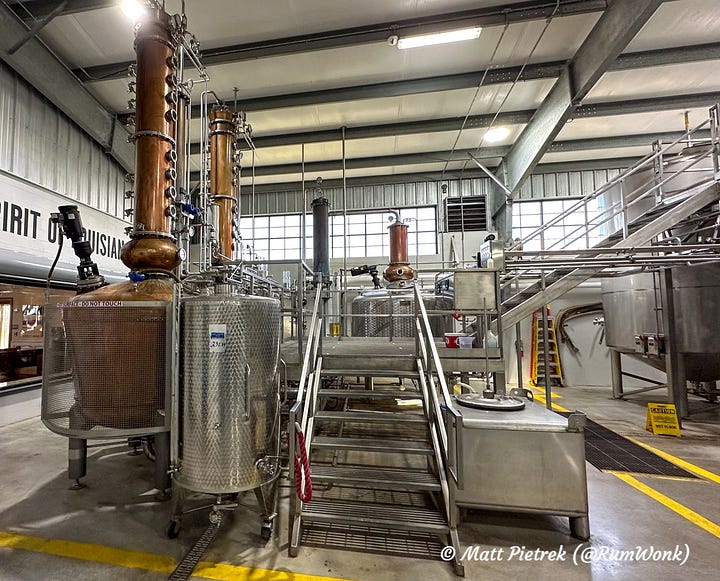
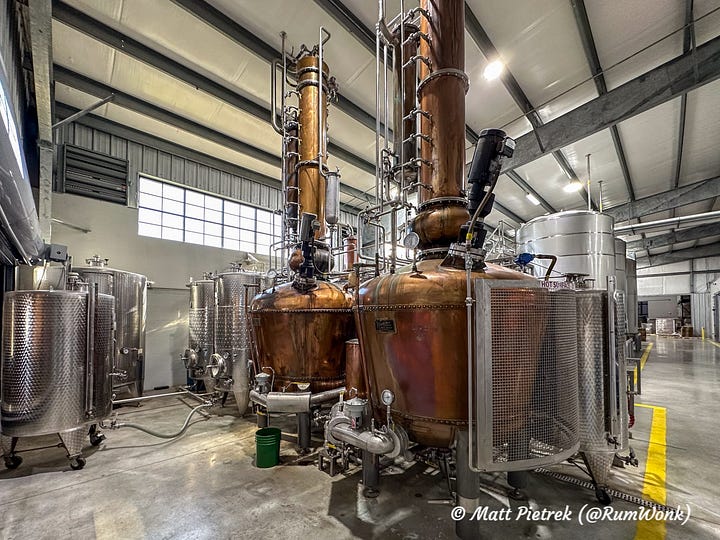
A back-of-the-envelope calculation that assumes a single 4,000-gallon batch of wash per day and 300 production days a year yields an estimate of around 500,000 LAA annually.
Bayou’s raw distillate is diluted to between 60 and 65 percent ABV before entering ex-bourbon barrels. Of particular note is the Bayou Reserve expression, which ages in a true solera system — yes, just like how they age sherry in Spain. The solera started circa 2016, and it typically takes around four years for a drop of rum to pass through the solera. However, the rum carries no age statement, so there’s no issue with misleading inferred age claims like with some brands.
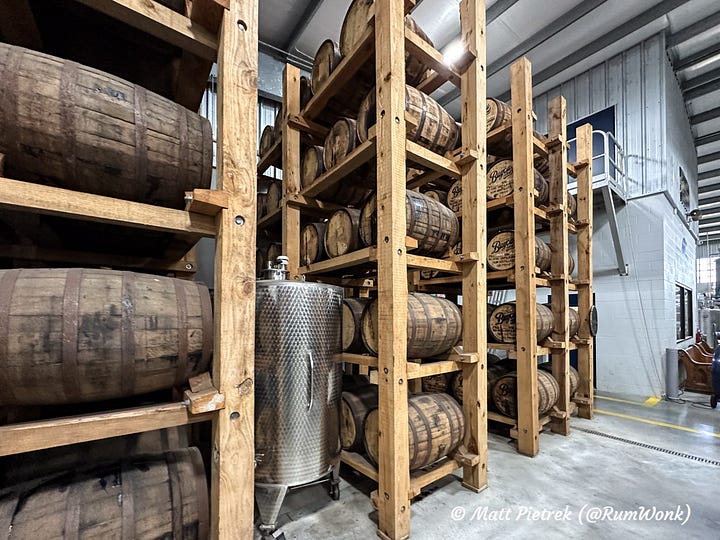
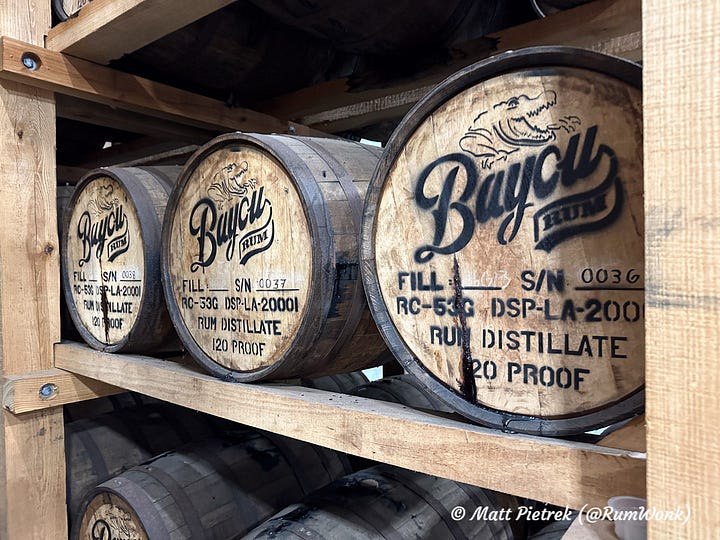

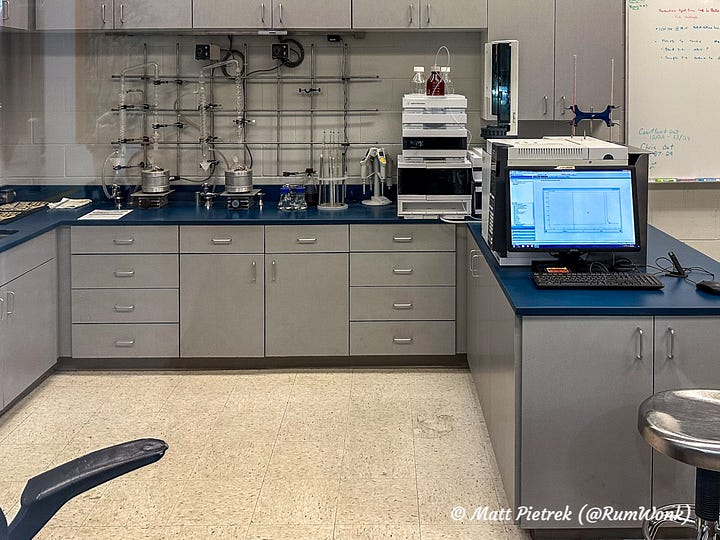
Bayou’s Rums
Full disclosure: prior to my visit, I hadn’t spent any time with Bayou’s rum since 2016. I found Bayou’s aged rums to be… fine… but nothing distinguished them from lots of rums from other American distilleries.
My recent visit to Bayou was a completely different experience from my first sip of Bayou’s (unaged) White rum. The Lone Caner and I have different opinions on Bayou’s White, but I find it surprisingly flavorful and pleasant, unlike the bland, unaged rums of many American distilleries. A well-experienced friend whom I blind-tasted the White on agrees with me. It calls out to be used in a daiquiri.
Bayou’s Single Batch Rum ages exclusively in ex-bourbon barrels, sans solera. The top-of-the-line XO Mardi Gras ages for five years in ex-bourbon before spending an additional year in Pedro Ximinez sherry casks. However, the sleeper of the lineup is the solera-aged Bayou Reserve rum, which comes across as a moderately aged Spanish-heritage column rum crossed with a pot-column blend from Barbados. It won’t go head-to-head with Mount Gay XO or Appleton 12, but for just $30, it’s worth checking out.



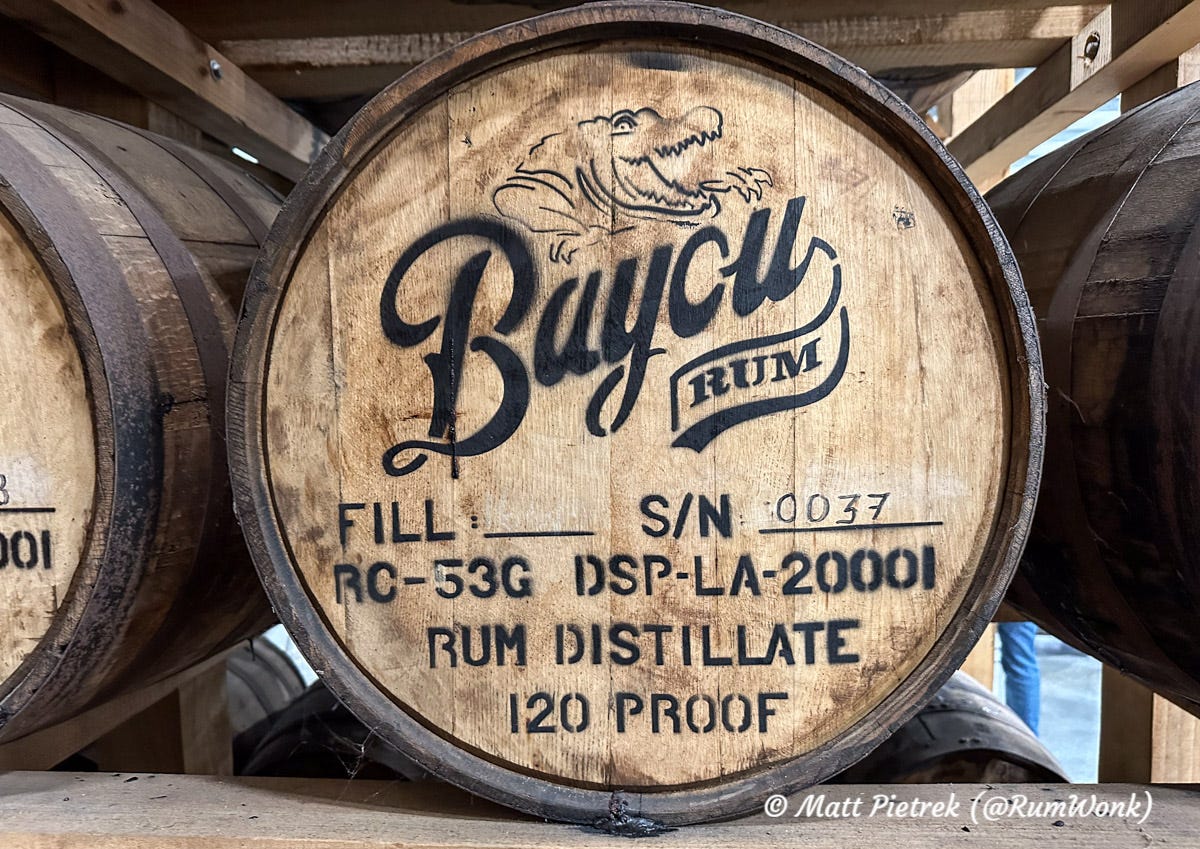
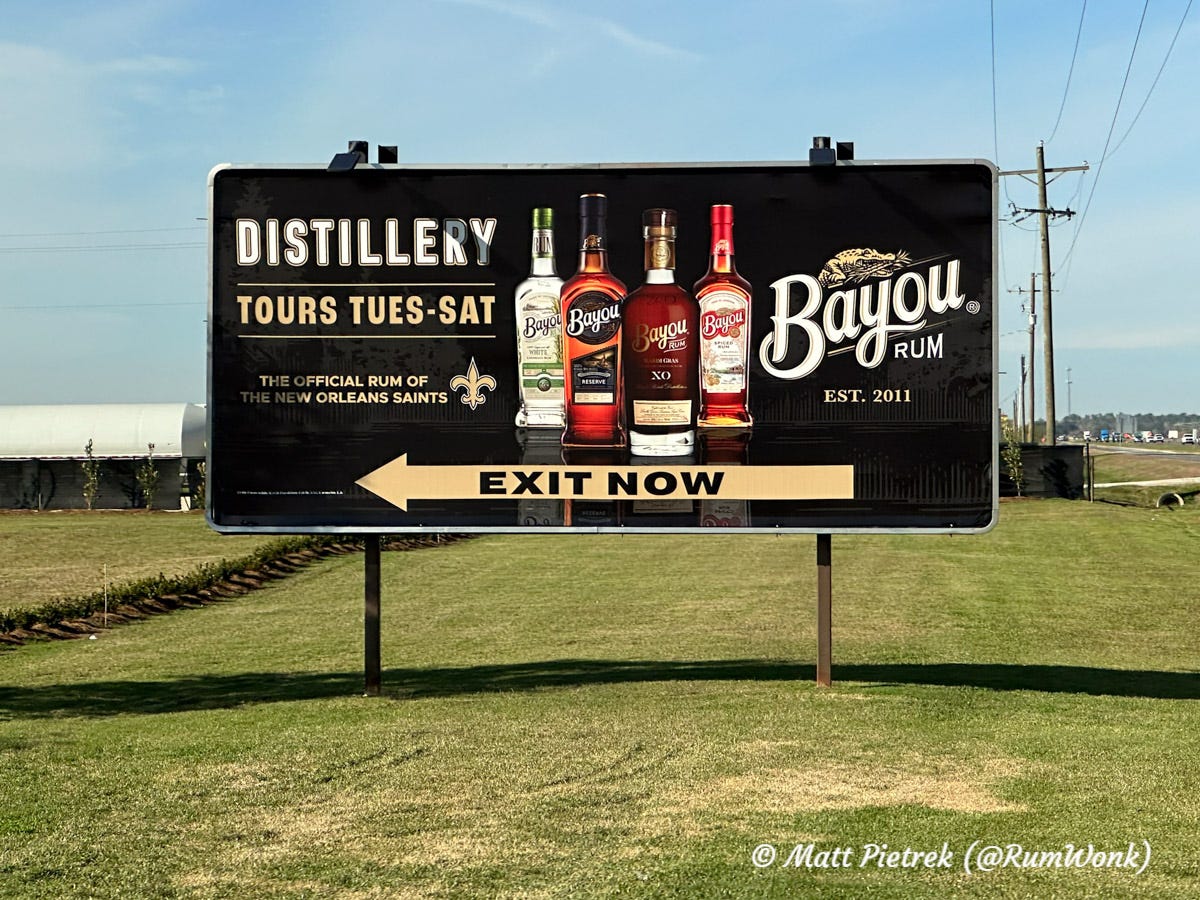
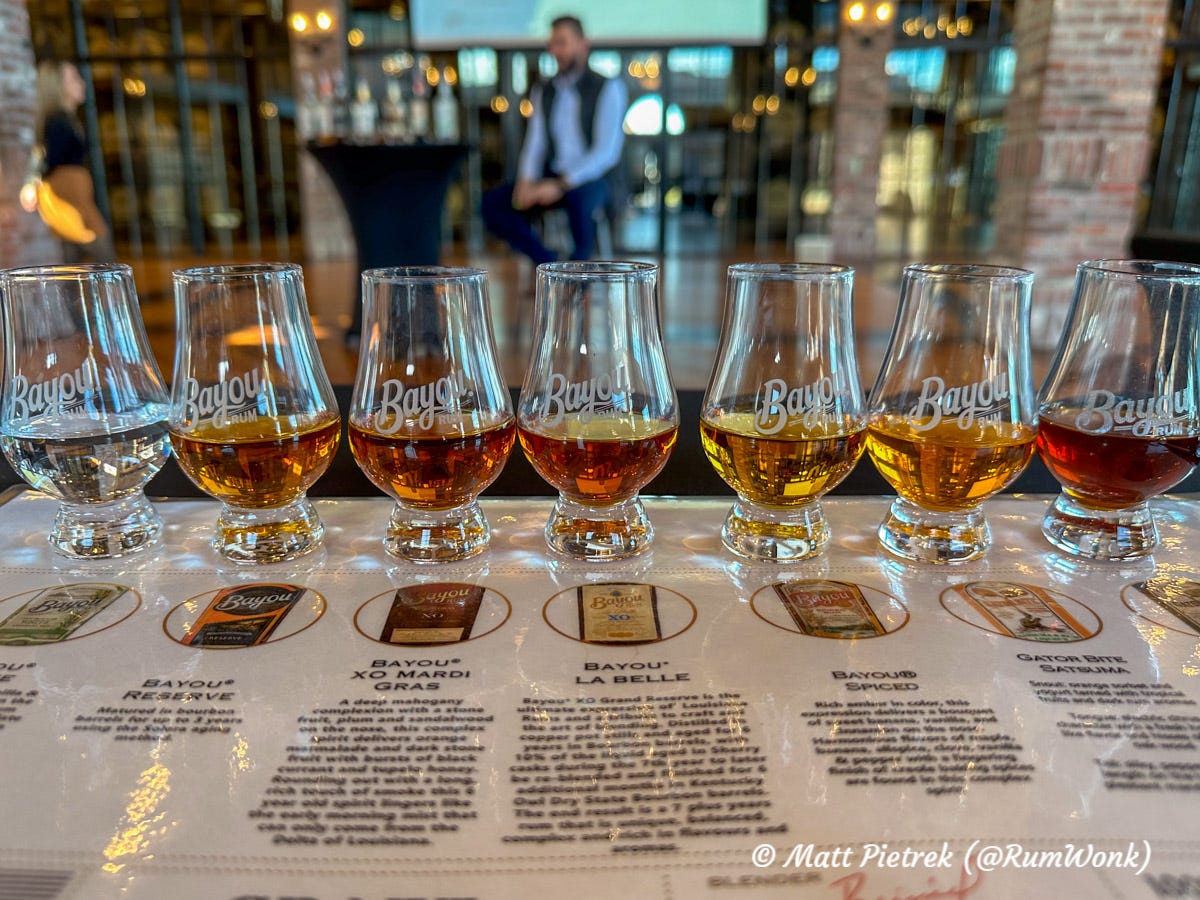
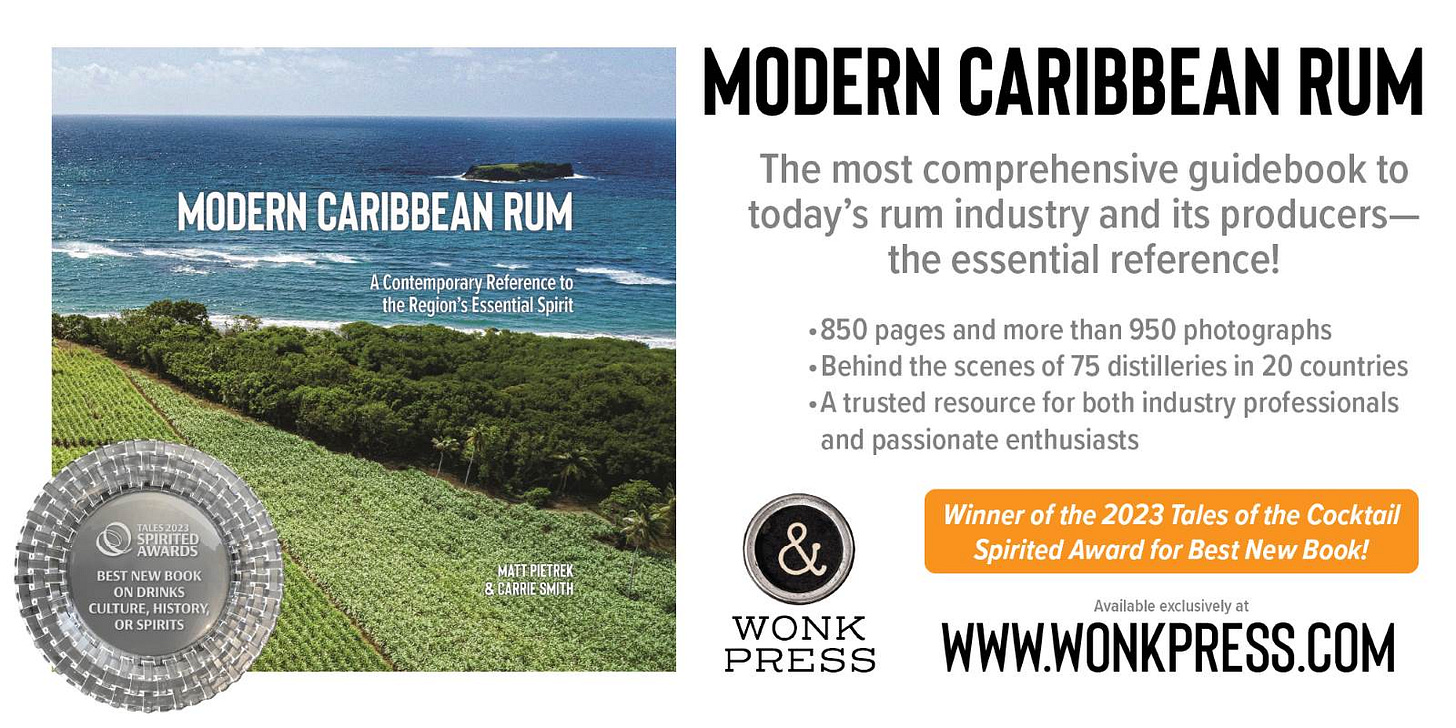
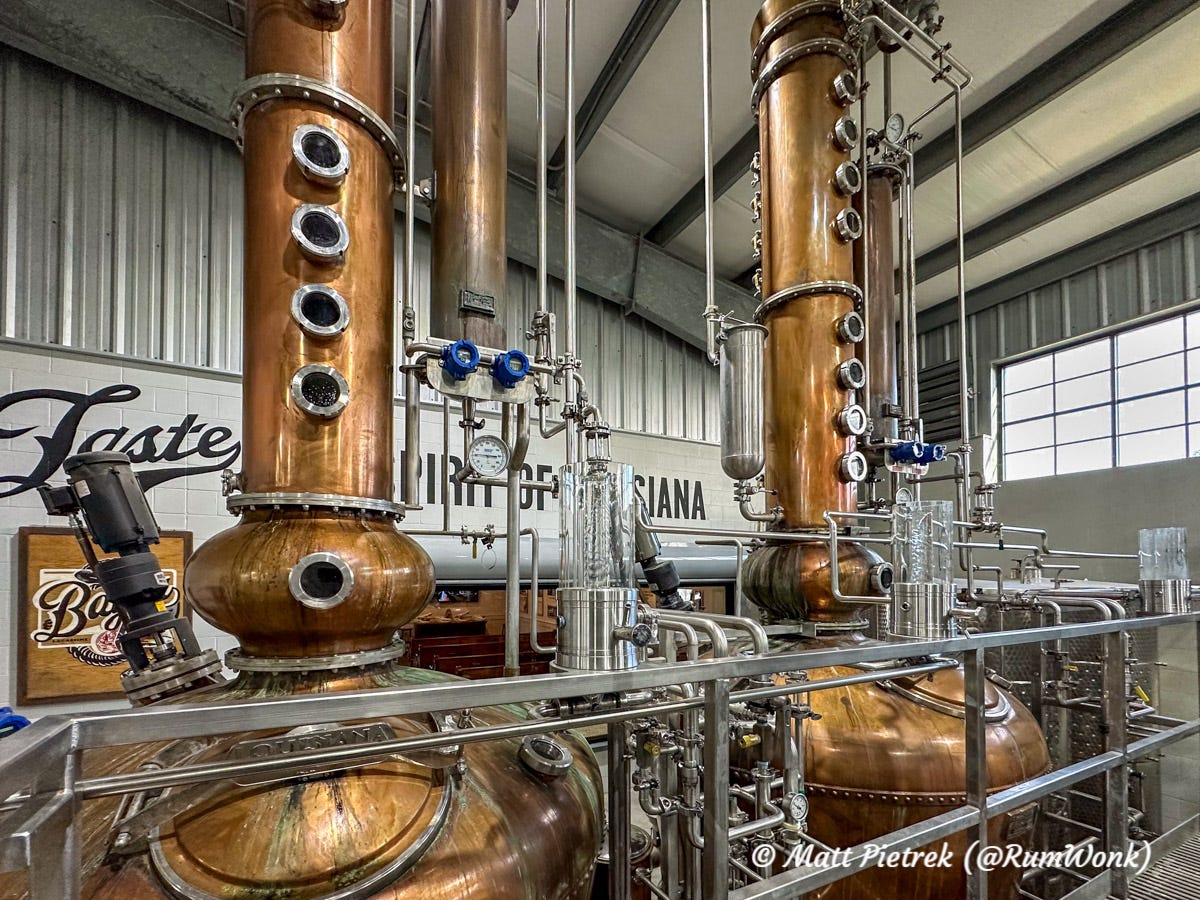
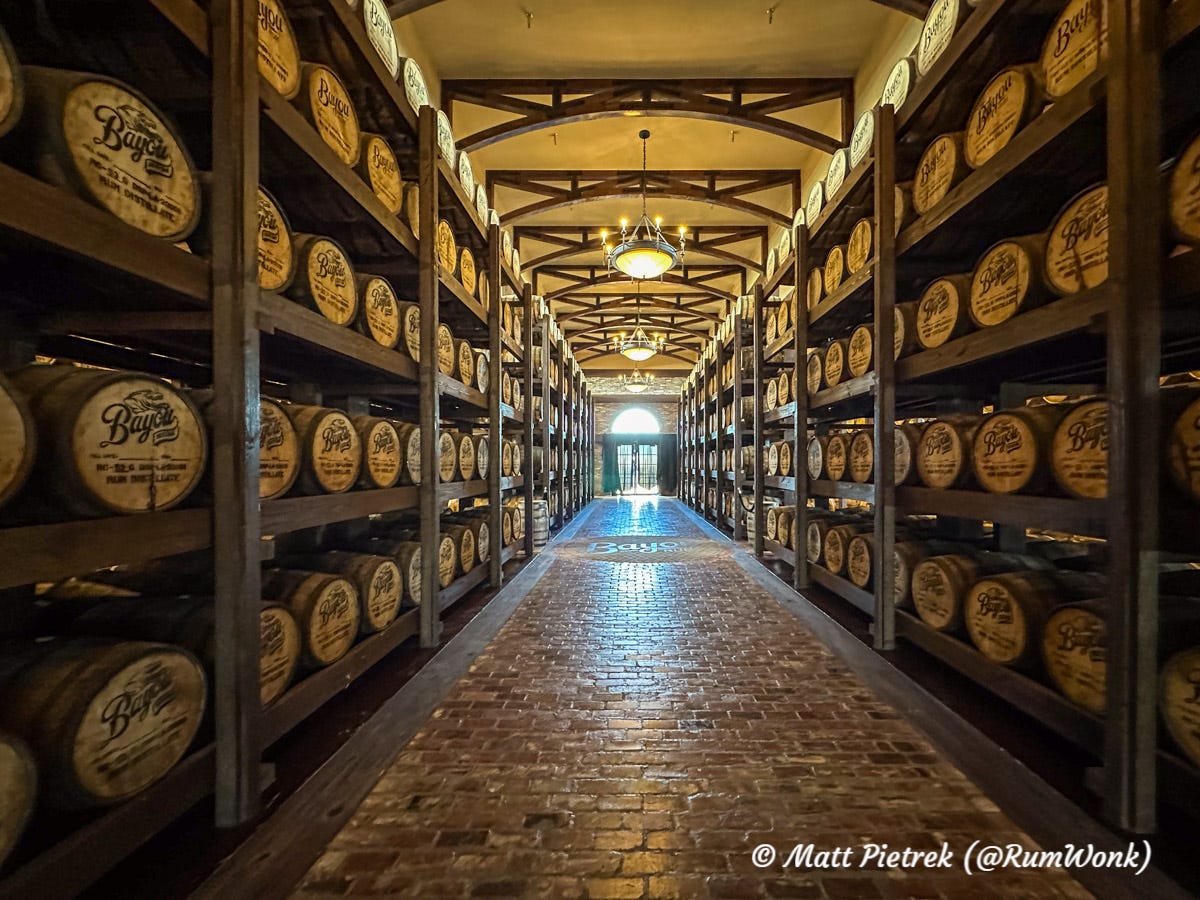

Excellent review! Thank you for putting this together. I have heard mixed things about Bayou. They don't sound as off putting as I thought.